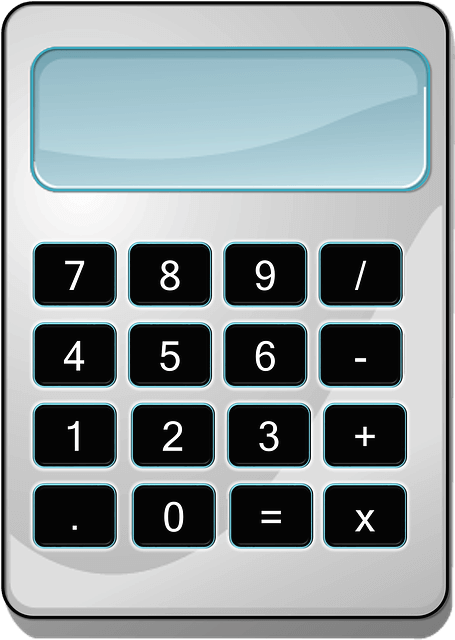
To predict your TOEFL score, you need to do a lot of practice tests. You also need to score your practice performance based on the TOEFL’s 30 point scale.
How to Predict your TOEFL Score, Step 1: Figure out how many points you earned in each section of a TOEFL exam
To give yourself practice TOEFL scores and predict your real TOEFL score, you first have to figure out how many points you earned in each section of a practice test. (The method for doing this varies from section to section; see the links at the end of this post for more information.)
Whenever you complete a practice TOEFL Reading or Listening section, calculate the number of points you earned. This is not as simple as checking the answer key. You also need to know how many points each question is worth, and whether or not you earned partial credit on questions that are worth more than one point.
For TOEFL Speaking and Writing, you need to calculate your rubric-based score for every practice section you complete. Some TOEFL preppers self-score by consulting the official TOEFL Speaking rubrics as well as the TOEFL Writing score guides.
For most people, however, self-scoring is a difficult, less-than-reliable way to calculate Speaking and Writing points. It’s better to go to someone else for getting feedback and unofficial scoring on your Speaking and Writing Tasks. Usually, this kind of feedback comes from a TOEFL tutor, but sometimes you can also get scoring help from other sources. To find good TOEFL Speaking and Writing Feedback, check out these Magoosh TOEFL Blog posts:
- Getting Feedback on Your TOEFL Writing
- Getting Feedback on Your TOEFL Speaking
- Choosing a TOEFL Tutor
- Places to Find TOEFL Tutoring Online, Part 1
- Places to Find TOEFL Tutoring Online, Part 2
- The Best TOEFL Forums
How to Predict your TOEFL Score, Step 2: Convert your point score into a percentage score
Every point score can translate into a percentage score. To see how this works, let’s look at some hypothetical scores for the sections of a practice TOEFL. 28 out of 33 points in TOEFL Reading is a score of 84%. 24/28 in a Listening Section would be a similar 89%. In TOEFL Speaking, an average task score of 3.67 out of 4 is 92%. Finally, a 4/5 on TOEFL Writing is 80%.
How to Predict your TOEFL Score, Step 3: Convert your percentage score into a scaled TOEFL score
Each TOEFL section has a different number of questions and a different number of earnable points. But in the final score report, all four sections are measured on a scale of 0 to 30. So convert your percentage score on you practice TOEFL exam to a percentage of 30. This alone will give you a rough estimate of what your real TOEFL score will be. In the examples above, 84% of 30 gets you roughly 25 in TOEFL Reading. Then your 89% in TOEFL Listening gets you an approximate 27. Your 92% in TOEFL Speaking could be around 28. And the 80% in Writing comes out to a possible 24.
Notice my use of very cautious language in the paragraph above. I talk about what your score “roughly” or “possibly” might be. On the real exam, there isn’t always a perfect match between percentage score and scaled score. This is because ETS will make certain small adjustments to your scaled score, for various reasons. ETS is pretty secretive about exactly how and why they make those adjustments. Fortunately, Magoosh has been able to look carefully at the score adjustment data that is available from ETS and make a set of “adjusted” percentage-to-scaled-score conversion table. We have one adjusted scaled TOEFL score conversion table for TOEFL Reading/TOEFL Listening, another table for TOEFL Speaking, and of course, one for TOEFL Writing. You can check out those three tables in Kate’s post “Estimating Your TOEFL Score.”
Now that you’ve got your scaled section scores, simply add them together for your whole-test score. To use the un-adjusted example above, 25 + 27 + 28 + 24 equals 104. That’s your overall TOEFL score!
How to Predict your TOEFL Score, Step 4: Do several practice tests, and average together several whole-test scores
The most accurate predictor of your TOEFL score is your performance across several different full practice tests. (Preferably you should use official practice TOEFL exams from ETS– but be sure to use an updated test, since a number of ETS’s official resources are still based on the format prior to the 2019 TOEFL update.) Let’s say that you take five practice TOEFL tests from ETS, with the following scores: 26, 24, 27, 25, 24. Add these scores together to get 126, divide 126 by 5, and you have an average of 25.2. Round this down to 25, and you can reasonably predict your TOEFL score will be about 25. If that’s below your target score, do more practice tests, reassess your average, and predict your score again.
(NOTE: As I mentioned above, currently, the free official ETS TOEFL practice on their website is up-to-dade, but the ETS TOEFL books match the old format of the TOEFL rather than the newer, more recent TOEFL format. But they’re still useful for gauging your score. See Magoosh’s guide to using older TOEFL prep for more information. And if you want a truly up-to-date full TOEFL exam, you can get one from Magoosh TOEFL.)
The math for scoring different sections of the TOEFL
Each section of the TOEFL has a different number of total points, and a different way of calculating raw scores. To help you master the math of predicting your TOEFL score, I’ve created score prediction tutorials for the four sections of the TOEFL. Here are the links:





